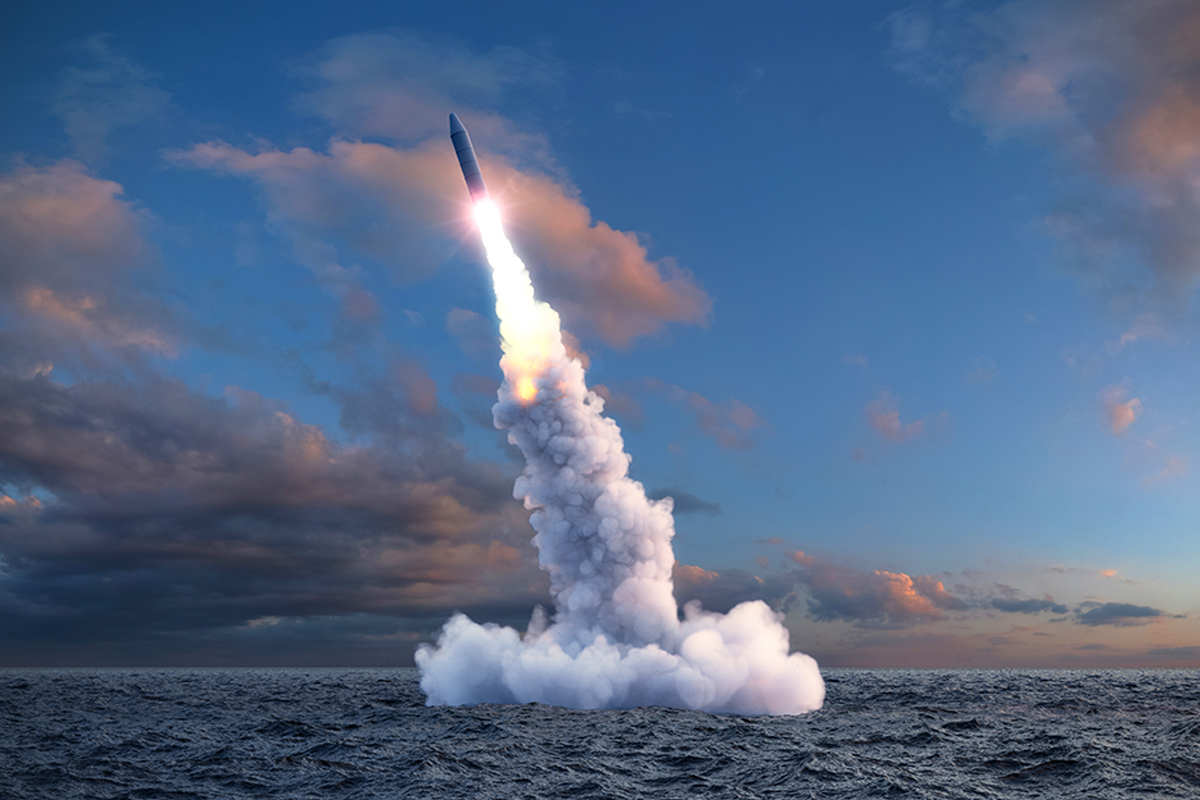According to Japan’s Defence Ministry, North Korea sparked renewed tensions by launching an intercontinental ballistic missile that remained airborne for over 70 minutes. This incident suggests a potential escalation in conflicts with Washington and its partners.
The duration of the flight, which surpassed previous missile tests conducted by North Korea in March and April, implies a subtle advancement in their technology. These missiles are Intercontinental Ballistic Missiles (ICBMs), capable of reaching mainland USA.
The recent missile descended into waters close to Japan, following threats by Pyongyang earlier this week to bring down US military reconnaissance planes that they accused of conducting “aggressive espionage” near North Korean borders.
Although typical of North Korea, this episode of bellicose rhetoric and missile launching takes place amid escalating strain in the region. Concurrently, Washington and Seoul are strengthening their defence collaboration, and this event appears deliberately timed with the NATO summit in Lithuania, where leaders of South Korea, Japan, and the US are discussing security issues, including the North Korean threat.
The recent missile, North Korea’s first in three months, travelled 1,000 kilometres (621 miles) and ascended over 6,000 kilometers (3,700 miles), per the information provided by Japan’s Defense Ministry.
The flight duration helps estimate the missile’s range. North Korea usually tests its missiles along a highly lofted path, resulting in the missile landing in neighbouring waters instead of a direct route which would be used in an actual attack.
Japan’s Coast Guard reports that the missile was launched at 9:59 a.m. local time and descended into the Sea of Japan (also referred to as the East Sea) at 11:15 a.m., based on data from the Ministry of Defense.
Expert analysts suggest North Korea might have tested its Hwasong-18 ICBM, a road-mobile missile with solid fuel that is more challenging to detect and intercept than other liquid-fuel ICBMs developed by North Korea. North Korean leader Kim Jong Un has previously labelled the Hwasong-18 as his most potent nuclear weapon, though there’s no indication that this missile can effectively deliver a nuclear warhead.
Kim Dong-yub, a professor at the University of North Korean Studies in Seoul, said, “This seems to be North Korea’s second test of the Hwasong-18 ICBM, initially fired on April 13. It appears North Korea is continually advancing its missile technology based on the results of the first test launch.”
As Yoon’s press office stated, south Korean President Yoon Suk Yeol convened an emergency National Security Council meeting on Wednesday morning in Lithuania in response to the missile launch. Yoon is in Vilnius for the NATO summit.
His office reports that the South Korean President plans to advocate for “robust international unity” at the NATO summit in response to North Korea’s actions.
US Denounces ‘Audacious’ Test
The US accused North Korea’s missile test. US National Security Council spokesperson Adam Hodge labelling it “a flagrant breach of several UN Security Council resolutions that unnecessarily exacerbates tensions and risks unsettling the region’s security situation.”
Hodge urged all nations to denounce the violation and to persuade North Korea to “engage in serious negotiations.”
“Although the door to diplomacy remains open, Pyongyang must immediately cease its destabilizing activities and instead opt for diplomatic engagement. The United States will take all necessary steps to safeguard the security of the American homeland and its allies in the Republic of Korea and Japan.”
A communique issued during the NATO meeting on Tuesday urged North Korea to terminate its ballistic missile and nuclear weapons programs.
“We call on North Korea to consider the repeated calls for dialogue by all concerned parties, including Japan, the United States, and the Republic of Korea,” the communique stated.
However, North Korea is unwilling to negotiate with Washington or Seoul.
The recent ICBM test is preceded by threats from Kim Yo Jong, North Korean leader Kim Jong Un’s sister and a prominent North Korean official. She alleged that a US spy plane thrice intruded into North Korea’s exclusive economic zone.
“If these unlawful intrusions continue, the US forces will face a highly critical flight,” Kim cautioned in a statement released on Tuesday by North Korea’s state news agency.
The accusations were dismissed by the US and South Korea, who urged North Korea to abstain from escalating tensions with unfounded claims.
Leif-Eric Easley, an associate professor of international studies at Ewha Womans University in Seoul, suggests that Kim’s accusations are a part of North Korea’s regular pattern of exaggerating external threats to consolidate domestic support and rationalize weapons tests.
“Pyongyang also plans its force demonstrations to disrupt what it perceives as coordinated diplomatic opposition against it, as seen in the leaders of South Korea and Japan meeting during the NATO summit,” said Easley.
Last month, North Koreans held large-scale anti-US rallies in Pyongyang to commemorate the 73rd anniversary of the Korean War. According to state media, participants labelled the US as the “Destroyer of peace and stability on the Korean Peninsula” and threatened nuclear war.
In the meantime, South Korea, the US, and Japan have been conducting joint and trilateral military exercises to deter any military threat from North Korea.
The missile launch on Wednesday precedes North Korea’s 70th-anniversary celebration of the Korean Armistice Agreement, which ended the Korean War hostilities. It also follows North Korea’s unsuccessful attempt to launch its first spy satellite in May.
Launching the intercontinental ballistic missile by North Korea has significantly heightened the regional tensions. It has spurred calls for more vigorous international solidarity and serious diplomatic negotiations to curb further disruptions of regional stability. The incident showcases North Korea’s continuing efforts to advance its missile technology. It emphasizes the importance of persistent diplomatic and defence efforts by countries including South Korea, the US, and Japan. The world now watches with apprehension as this event could potentially impact the region’s overall geopolitical stability and future diplomatic relations.







